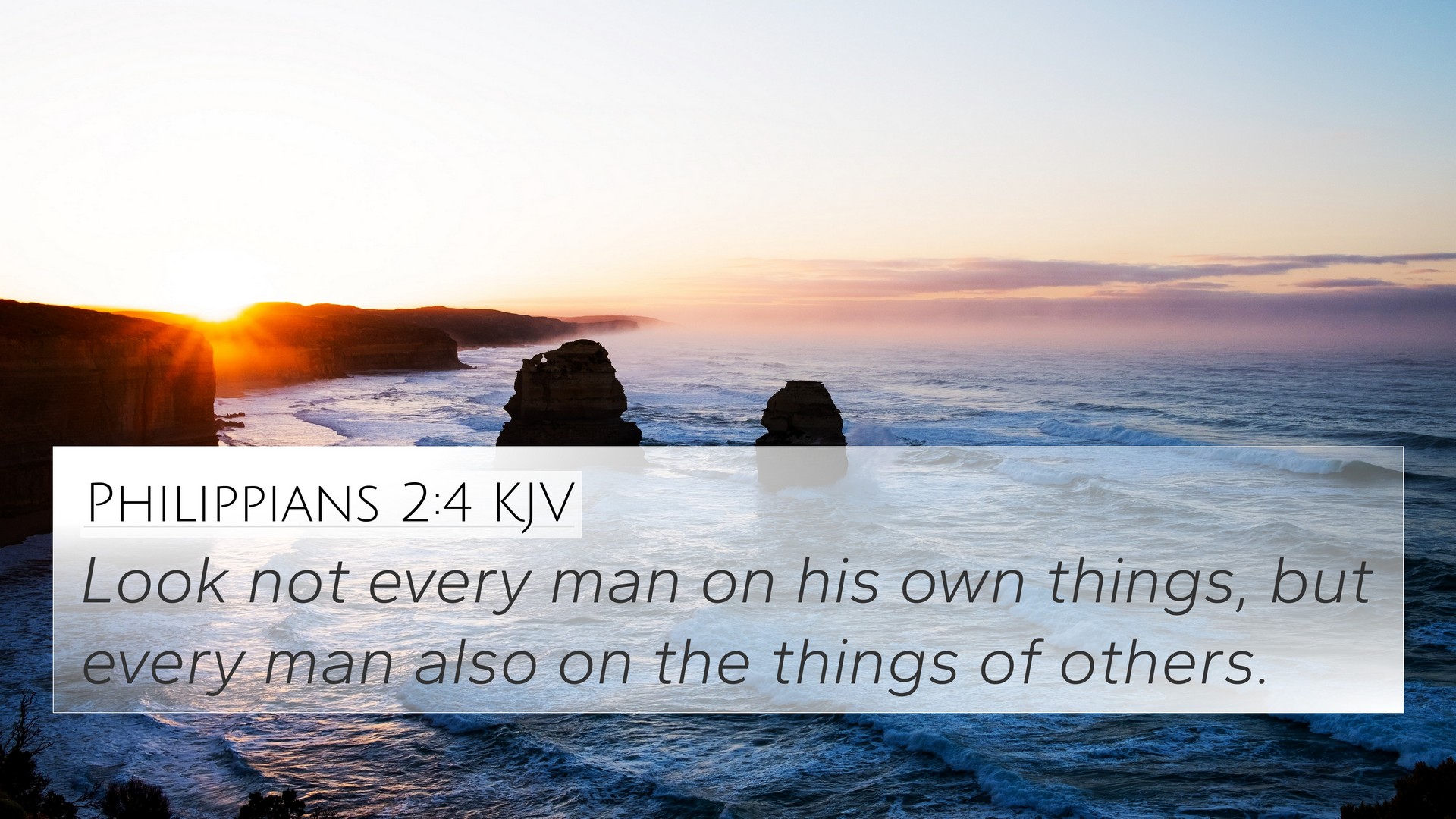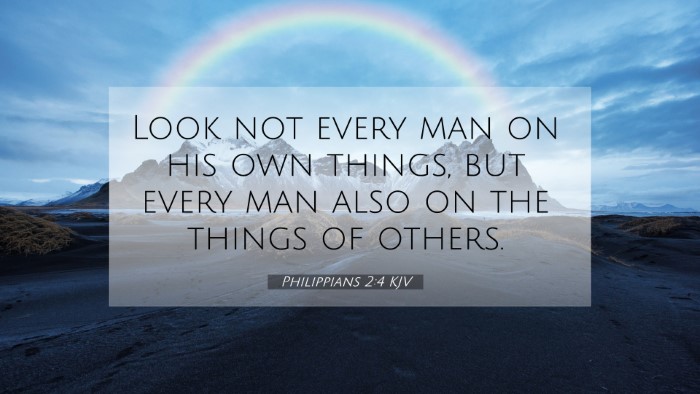Understanding Philippians 2:4
Bible Verse: Philippians 2:4 - "Let each of you look not only to his own interests, but also to the interests of others."
Verse Meaning Overview
This verse emphasizes the importance of selflessness and community within the Christian faith. It challenges individuals to not only pursue their personal desires but to actively consider and support the needs of others. This principle is foundational in building a loving and united community of believers.
Commentary Insights
-
Matthew Henry:
Matthew Henry discusses the necessity of humility in fulfilling Christian duties. He notes that looking out for the interests of others mirrors the character of Christ, who demonstrated ultimate selflessness. Henry points out that this attitude fosters unity and harmony within the church.
-
Albert Barnes:
Albert Barnes elaborates on the call to mutual care among believers. He stresses that self-focus can lead to discord and disunity, whereas selflessness promotes community. Barnes suggests that this principle extends beyond mere charity; it’s about genuinely valuing the well-being of others.
-
Adam Clarke:
Adam Clarke emphasizes the practical application of this verse. He argues that Christians are called to actively engage with each other’s needs. Clarke interprets this not just as advice, but as a command to develop an attitude that prioritizes others’ welfare, encouraging believers to embody love in action.
Bible Verse Cross-References
To deepen the understanding of Philippians 2:4, here are some related verses that share similar themes of selflessness, community, and love:
- 1 Corinthians 10:24: "Let no one seek his own, but each one the other's well-being."
- Galatians 5:13: "For you, brethren, have been called to liberty; only do not use liberty as an opportunity for the flesh, but through love serve one another."
- Romans 15:1: "We then who are strong ought to bear with the scruples of the weak, and not to please ourselves."
- Ephesians 4:32: "And be kind to one another, tenderhearted, forgiving one another, even as God in Christ forgave you."
- James 2:8: "If you really fulfill the royal law according to the Scripture, 'You shall love your neighbor as yourself,' you do well."
- Matthew 5:16: "Let your light so shine before men, that they may see your good works and glorify your Father in heaven."
- John 15:12: "This is My commandment, that you love one another as I have loved you."
Connections Between Bible Verses
This verse is part of a broader narrative that promotes love and community. When linking Bible scriptures, it becomes evident how Philippians 2:4 serves as a practical extension of Jesus's teachings, particularly in the Sermon on the Mount (Matthew 5) and His instruction to love one another (John 13:34). These connections highlight the communal aspect of Christian living.
Thematic Bible Verse Connections
The themes present in Philippians 2:4 can be found throughout the New Testament, illustrating a network of scriptural cross-references that encourage believers to live in harmony, reflecting the love of Christ:
- Selflessness
- Community support
- The exercise of love
- The duty of serving others
Comparative Bible Verse Analysis
By conducting a comparative study of Pauline epistles, one can identify how different letters address the notion of community and selflessness. A comprehensive Bible cross-reference guide will reveal parallels not only within Paul's writings but also across the New Testament, enriching the reader's understanding of the Christian imperative to love and serve.
Practical Application: How to Use Bible Cross-References
Engaging with cross-references is a valuable tool for Bible study that enhances one’s understanding of Scripture. Consider the following methods:
- Use a Bible concordance to look up key terms.
- Employ a cross-reference Bible study to locate related verses.
- Examine themes across the Old and New Testament to identify connections.
Conclusion
Philippians 2:4 serves as a powerful reminder of the call to selfless living within the Christian community. By engaging with this verse and its associated cross-references, believers can cultivate a deeper understanding of their faith and the relational dynamics that Christ desires among His followers.














